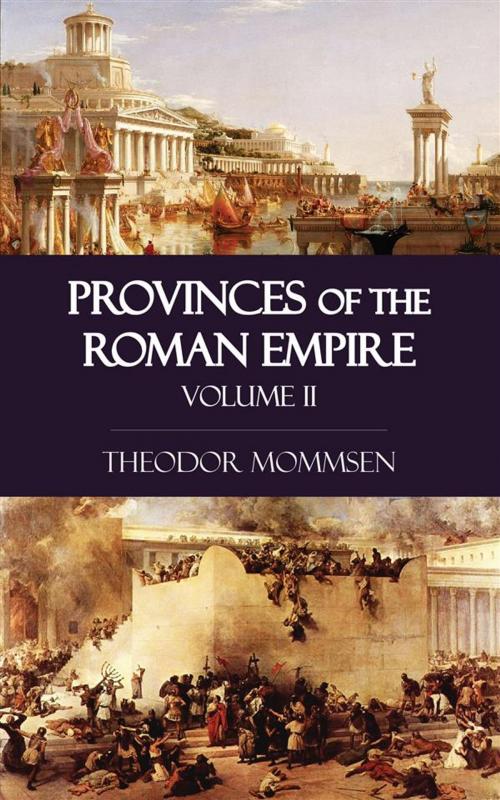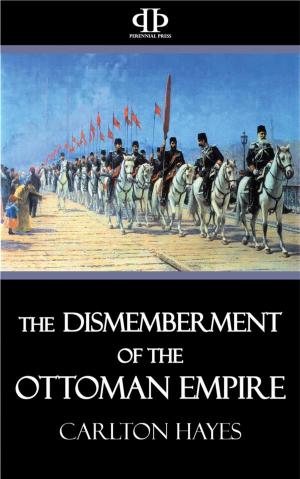| Author: | Theodor Mommsen | ISBN: | 9781531255619 |
| Publisher: | Perennial Press | Publication: | March 6, 2016 |
| Imprint: | Language: | English |
| Author: | Theodor Mommsen |
| ISBN: | 9781531255619 |
| Publisher: | Perennial Press |
| Publication: | March 6, 2016 |
| Imprint: | |
| Language: | English |
The only great state with which the Roman empire bordered was the empire of Iran, based upon that nationality which was best known in antiquity, as it is in the present day, under the name of the Persians, consolidated politically by the old Persian royal family of the Achaemenids and its first great-king Cyrus, united religiously by the faith of Ahura Mazda and of Mithra. No one of the ancient peoples of culture solved the problem of national union equally early and with equal completeness. The Iranian tribes reached on the south as far as the Indian Ocean, on the north as far as the Caspian Sea; on the north–east the steppes of inland Asia formed the constant battle-ground between the settled Persians and the nomadic tribes of Turan. On the east mighty mountains formed a boundary separating them from the Indians. In western Asia three great nations early encountered one another, each pushing forward on its own account: the Hellenes, who from Europe grasped at the coast of Asia Minor, the Aramaic peoples, who from Arabia and Syria advanced in a northern and north–eastern direction and substantially filled the valley of the Euphrates, and lastly, the races of Iran, not merely inhabiting the country as far as the Tigris, but even penetrating to Armenia and Cappadocia, while primitive inhabitants of other types in these far–extending regions succumbed under these leading powers and disappeared. In the epoch of the Achaemenids, the culminating point of the glory of Iran, the Iranian rule went far beyond this wide domain proper to the stock on all sides, but especially towards the west. Apart from the times, when Turan gained the upper hand over Iran and the Seljuks and Mongols ruled over the Persians, foreign rule, strictly so called, has only been established over the flower of the Iranian stocks twice, by Alexander the Great and his immediate successors and by the Arabian Abbasids, and on both occasions only for a comparatively short time; the eastern regions—in the former case the Parthians, in the latter the inhabitants of the ancient Bactria—not merely threw off again the yoke of the foreigner, but dislodged him also from the cognate west...
The only great state with which the Roman empire bordered was the empire of Iran, based upon that nationality which was best known in antiquity, as it is in the present day, under the name of the Persians, consolidated politically by the old Persian royal family of the Achaemenids and its first great-king Cyrus, united religiously by the faith of Ahura Mazda and of Mithra. No one of the ancient peoples of culture solved the problem of national union equally early and with equal completeness. The Iranian tribes reached on the south as far as the Indian Ocean, on the north as far as the Caspian Sea; on the north–east the steppes of inland Asia formed the constant battle-ground between the settled Persians and the nomadic tribes of Turan. On the east mighty mountains formed a boundary separating them from the Indians. In western Asia three great nations early encountered one another, each pushing forward on its own account: the Hellenes, who from Europe grasped at the coast of Asia Minor, the Aramaic peoples, who from Arabia and Syria advanced in a northern and north–eastern direction and substantially filled the valley of the Euphrates, and lastly, the races of Iran, not merely inhabiting the country as far as the Tigris, but even penetrating to Armenia and Cappadocia, while primitive inhabitants of other types in these far–extending regions succumbed under these leading powers and disappeared. In the epoch of the Achaemenids, the culminating point of the glory of Iran, the Iranian rule went far beyond this wide domain proper to the stock on all sides, but especially towards the west. Apart from the times, when Turan gained the upper hand over Iran and the Seljuks and Mongols ruled over the Persians, foreign rule, strictly so called, has only been established over the flower of the Iranian stocks twice, by Alexander the Great and his immediate successors and by the Arabian Abbasids, and on both occasions only for a comparatively short time; the eastern regions—in the former case the Parthians, in the latter the inhabitants of the ancient Bactria—not merely threw off again the yoke of the foreigner, but dislodged him also from the cognate west...















